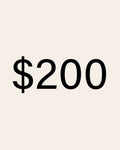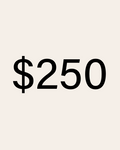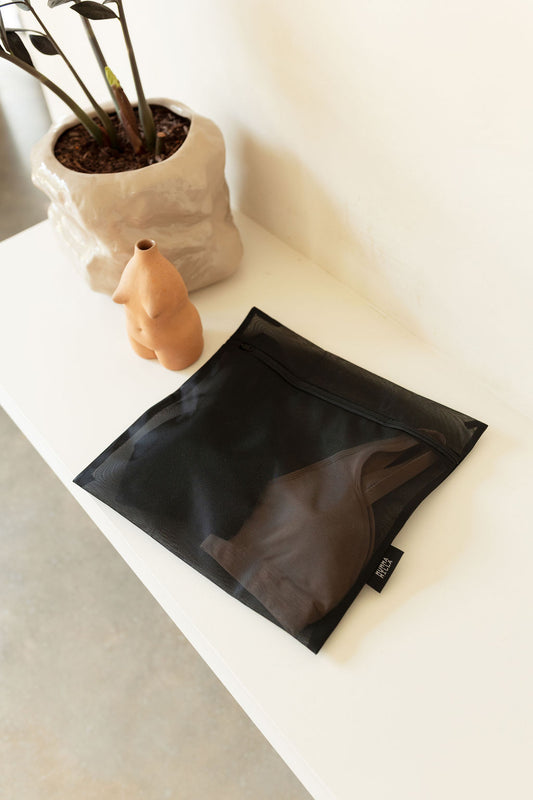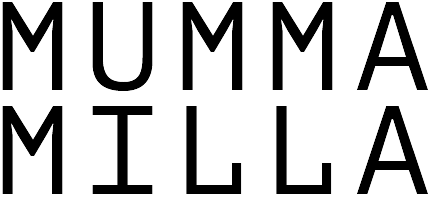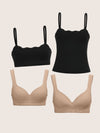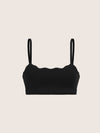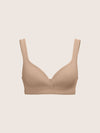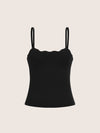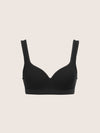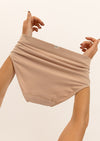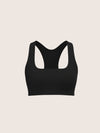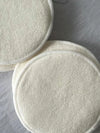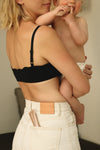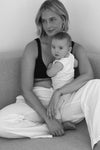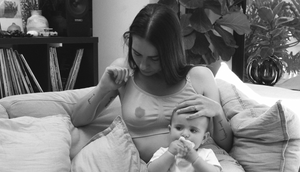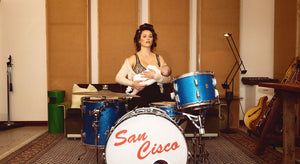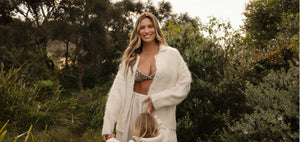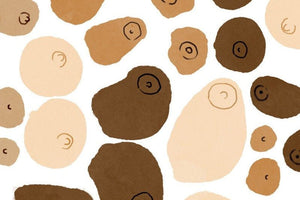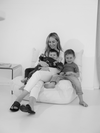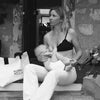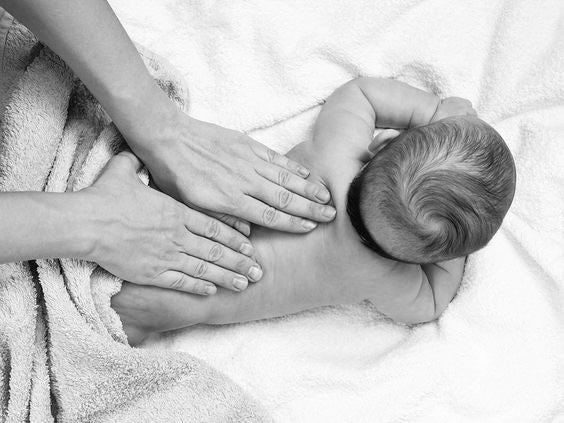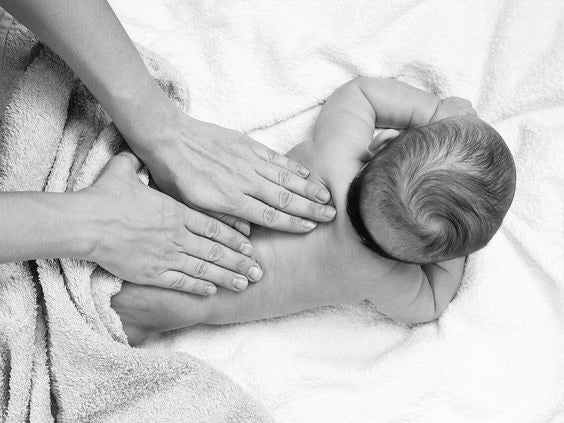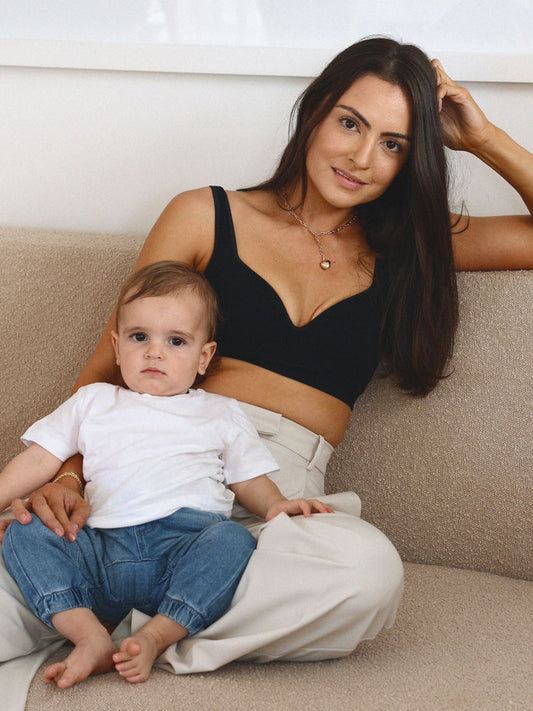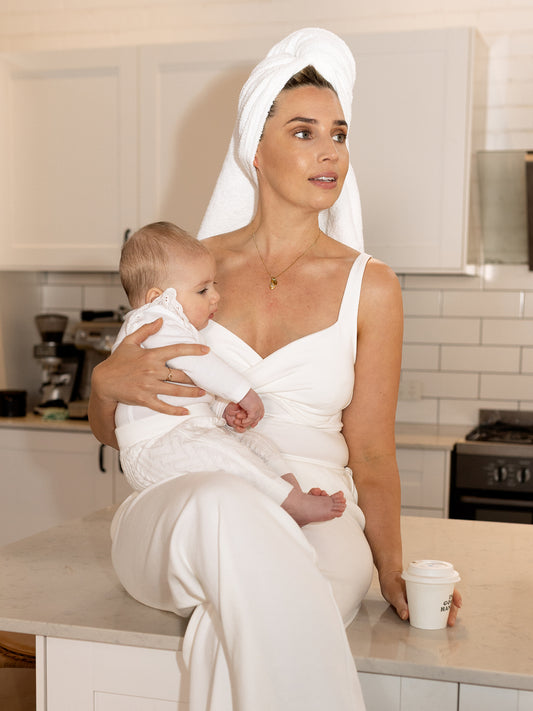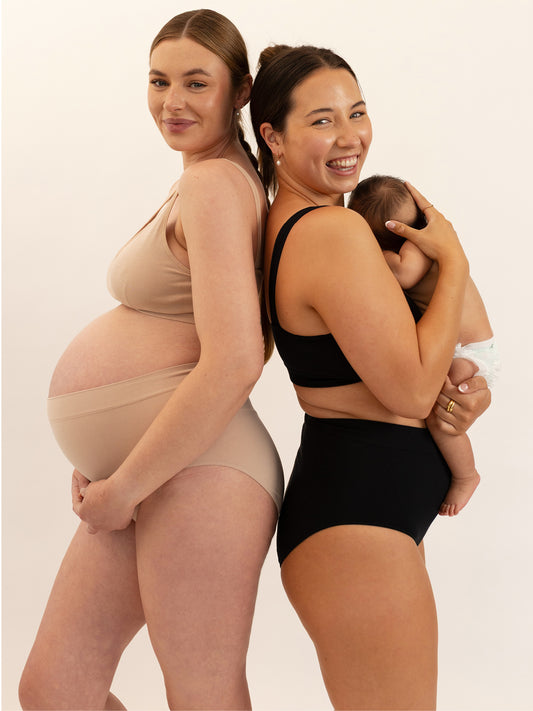Can you tell us a little bit about yourself?
I’m Mazz a Postpartum Doula, Infant Massage Instructor and Mum to Frankie (5) and Dylan (2) living in Sydney. I founded The Bond Wellbeing to help mums and their families to prepare for and experience a time of rest, recovery and bonding during their postpartum and beyond.

As a mother yourself, what does "motherhood"
mean to you?
Motherhood has cracked me open, shown me every human emotion dialled up to 11 and has ultimately seen me be pieced back together in a new and different way.
It’s also about an all-consuming love for my children and my role in raising this next generation. What could be more important than that?
"Mothers need to be held in order to hold."
Why is it so important to have a support structure for those who make that transition from woman to mother?
When you go from woman to mother and actually every time you give birth to a child you undergo a rite of passage.
Postpartum is the liminal phase or ‘messy middle’ of this rite of passage - you’re not who you once were and you’ve not yet integrated the old with the new. This is not a straightforward journey. It’s a bumpy road at times and requires so much support - emotional, practical and physical from those around you to you you navigate this time.
This transition is now referred to as matresence. Like adolescence, it is characterised by change to every aspect of your being - your mind, body and spirit evolve and even your role in society shifts.
Unfortunately, our society is no longer set up in a way that supports mothers as they have been in the past or as they are in other cultures. These days we are hyper-independent by the time we start a family and we commonly live in isolated nuclear families. Becoming a parent is not something we are designed to do alone. There is support out there but you you need to be smart and resourceful about seeking it out, investing in it and educating those around you on how you would like to be supported.

What are the six pillars of warmth for postpartum recovery?
Warmth is a key postpartum pillar and is central to postpartum healing from both a Traditional Chinese medicine and an Ayurvedic perspective.
Why? Well, after 9 months of building warmth through your blood, placenta, amniotic fluid and baby the balance is thrown off after birth and the body can be left with excess cold.
Promoting warmth helps with blood circulation for healing, energy levels, digestion, boosting oxytocin, bonding, breastfeeding and overall wellbeing.
There are many ways to build warmth in your postpartum, here are some of my favourite:
Food
Warm and cooked foods bring a sense of comfort from the inside out. After birth, your digestion is often compromised so these foods will be gently on your tummy. Thinks soups, broths, stews, slow-cooked meats, dhals and porridge.
Tea
Not only is warm tea the best way to stay hydrated you can select teas with therapeutic benefits like nettle, fennel or fenugreek for supporting milk supply, raspberry leaf for toning your uterus back down, dandelion for swelling or camomile to calm your nervous system.
Heat packs
Pop it in the microwave or fill that hot water bottle to ease aches and pains associated with feeding, carrying and post-birth recovery.
Foot baths
We all know I love a foot bath! Add some epsom salts to calm your nervous system and support your sleep.
Cosy socks
We can loose a lot of heat through our feet and warm feet are key to uterine health. So, after your footbath pop your cosiest socks on!
Massage
A warm oil massage has so many benefits from nourishing and warming the skin, pacifying the nervous system, reducing swelling and promoting a sense of calm through nurturing touch.
During your breastfeeding journey, what were your highs and lows? Do you have any tips for mums who have just given birth on what they can do to support recovery / establish a good milk supply?
I feel both lucky and proud to say that I breastfed both of my babies for around the first 12 months of their lives. The highs were the closeness and bonding from those countless hours of sitting staring down at their little faces as well as that sense of awe and amazement that I was sustaining life and so much growth purely through my own milk supply. It still blows my mind!
Wrapped up in those highs were some inevitable lows. Neither of my babies really took a bottle so I felt a lot of pressure that the feeding was all on me and time away from them and for myself was limited when they were little. When Dylan was one and I thought I would slowly wean him on my own terms he just quit feeding one day. This was such a shock and left me very flat due to the hormonal drop you often experience. Added to this was some grief around my breastfeeding journey coming to an end before I was fully ready. I don’t think we talk about the physical and emotional impacts of weaning enough.
What is a "Postpartum Doula"? - and what is your role during that pre and post-birth time?
A Postpartum Doula is a non-medical companion who walks alongside you throughout pregnancy and postpartum to help you experience a softer landing as a new mother or one with an expanded family. I believe mothers are the emotional centrepoint for the whole family and so I am there to take all of her needs into account so that she feels held, honoured and empowered.
During pregnancy, I help my clients build out their vision for postpartum and become intentional about how they approach this unique time. We start to navigate the challenges that may arise and create strategies to either mitigate or manage them if they do. Postpartum can be a wild ride and a lot sits outside of your control. That being said, there are many ways you can prepare your mindset and arrange practical elements of support. I also help to educate my clients on what to expect physically and emotionally. Understanding what’s going on, especially the major rewiring that occurs in the maternal brain can help you to have the self compassion you need as a mother.
Once the baby is born my in-home postpartum care visits begin and how they unfold depends on what is going on for the Mum. I have a buffet of services that I can provide and I help the Mum pick and choose based on what they need on that given day. Some of the things that my clients love include a healing foot soak followed by a warm oil Ayurvedic massage, deep and uninterrupted listening so they can fully debrief on whatever is going on for them and process what they are experiencing, creating a bonding ritual with baby massage, time for self care and rest while I watch the baby and connecting them with in with my ever-growing network of holistic health practitioners. I’m passionate about postpartum nutrition and also a strong believer in food as a source of comfort and joy. So, this is a central aspect to my visits and I always leave my clients well fed with a hearty and delicious meal and snack to keep them going.

You mention that particularly 'Western' Mothers are feeling increasingly isolated, undervalued and physically depleted. What are the reasons for this, and how can a simple support structure shift this?
Hmmmm how long have you got?! This is a big and complex topic but to put it simply we’re told we can have it all but I don’t believe our society has the structure to support this. Add in the cruel expectation that we can just ‘bounce back’ to our old selves, physically and emotionally. This does a huge disservice to the monumental transition experienced through matresence. I also think, why would you want to go back when you move forward? Moving forward through motherhood takes time, patience, self-compassion and support from all angles.
The first step is getting curious about how it feels for you to ask people for support orto invest in support for yourself. This is a common barrier I see come up and something I have experienced myself. I challenge my clients to think about where these feelings have come from. What have they been remodelled and what do they now want to role model for their children?
From a practical perspective, think about what you might need support with (from an emotional, practical and physical perspective) when the baby arrives, who can help (a professional, friend or family member) and communicate openly about those needs.

Postpartum nutrition. Why is it so important to nourish yourself during this time?
Postpartum is the most nutritionally expensive time in your whole life as a woman. If you are breastfeeding you require an additional 500+ calories a day which is more than during pregnancy. Our bodies prioritise what our babies need via the placenta during pregnancy and then via breastmilk once they are in your arms. If you don’t replenish your body with what they are taking you can be left feeling very depleted and this can continue for years into your motherhood journey. Being a mother is incredibly physically demanding work and so you need to fuel your body in the right way. Unfortunately, this comes at a time when you as the mother will be doing very little, if any cooking. This is why food is such an important practical element of your postpartum plan. Ask yourself, where will my nutritious meals come from and who will feed me? Meal train, meal deliveries, postpartum doula, family? Partners can play a role but often they are too tired to do much cooking in those early days.
Delicious nourishing foods can also provide so much comfort and joy during your postpartum. My clients live for my lactation cookies, slow-cooked lamb shanks and creamy miso dhal. Food that feels like a hug in a bowl and makes you feel held and cared for.

Post-birth recovery. What are your tips for mums out there?
Radically prioritise resting and bonding/feeding in those early days and drop your expectations around everything else. I always talk about the resting rule of thumb being ‘5 days in bed, 5 days on bed and 5 days around the bed. You don’t have to follow this to a tee but it helps to illustrate that bed is a central theme of those early days! Get horizontal, let others bring you food and tea and be skin to skin with your baby. If you can ease into the recovery in this way it will make for a much smoother onward journey. When I say this, I’m always conscious of mums who might feel like they missed this precious time if their babies’ arrival started with a stay in the NICU for example. I think it’s never too late to give yourself this period of rest, recovery and bonding even if it comes a little later than you’d hoped for.
You are an IAIM certified Infant Massage Instructor. What are the benefits of baby massage, and how does it help a newborn transition from womb to world?
What are some simple things a mum incorporate into their baby's routine at home if they don't have access to your magic touch!
The benefits of baby massage are endless for both mum, baby and the whole family. It’s a beautiful way to bond with your baby through nurturing touch, eye contact, and your voice. When you communicate with your baby in this way you are nurturing their developing brains and nervous system by bathing them in all the feel-good hormones. These hormones flow between the two of you and you can both relax into the ritual. These calming hormones can also support sleep and settling. While baby massage isn’t a therapy we do to our babies and more of a two-way communication, it can relieve discomfort associated with digestion and teething.
Look for an unscented, cold pressed vegetable oil, ideally something like grapeseed oil that doesn’t contain food proteins or isn’t associated with common allergies.
Wait until your baby is in a quiet alert state - they are awake, calm, happy and ready to engage before you get started. Always ask for their permission in the same way before you get started as a sign of respect and consent. Start with long soothing strokes on the limbs, clockwise circular motions on their tummy and a thumb press up and down on the soles of their feet.

Postpartum Depression / Depletion is a topic that is not recognised / spoken about enough. You are passionate about Perinatal Mental Health. What are some of the signs / strategies you offer mums from pregnancy to postpartum?
Your brain is being rewired and remade during pregnancy and postpartum so it’s normal to not feel quite like yourself at times. It’s also important to look out for signs in you and your partner that one of you isn’t coping. Some of the first signs might be significant changes in mood, feelings of hopelessness, sleep disturbances, tearfulness, irritability or struggling to bond with your baby.
Baby blues are very normal within the first couple of weeks due to the huge hormonal drop that you experience after birth. So big that it’s the world record for the biggest hormonal drop experienced across the human lifespan. You may feel very teary and experience extreme highs and lows in your emotional state. If these feelings don’t subside then let your partner, friends or family know and reach out to your GP, local child and family health nurse, or therapist. You can also check out some of the amazing parental mental health resources out there like COPE, Panda, or The Gidget Foundation. I think all Mums need support in navigating their mental health in postpartum so make sure you’re across the resources before you need them. One little tip I share with my clients is if you see a therapist, book some sessions in for during your fourth trimester. You can always cancel them but it’s good to know you have some in the back pocket if you’re feeling wobbly.
---
You can find out more about Mazz and THE BOND WELLBEING - postpartum support packages and baby massage courses at: www.thebondwellbeing.com and follow along on Instagram: https://www.instagram.com/thebondwellbeing/
My gift to the MUMMA MILLA community is my Postpartum Journalling Guide to help you reflect, process and grow from your experiences as a mother.
Header image from Baby Center.com
